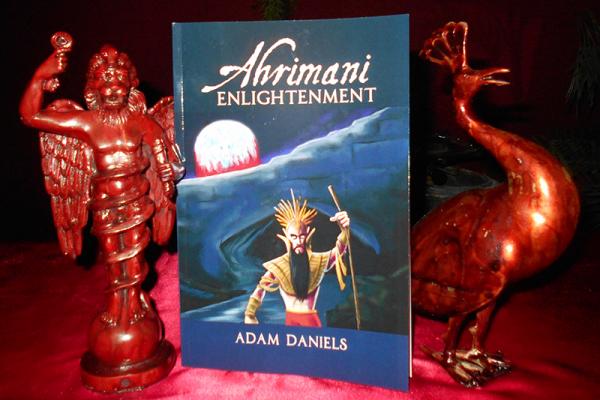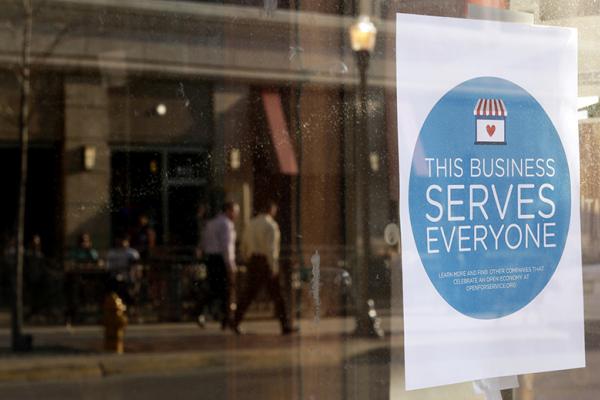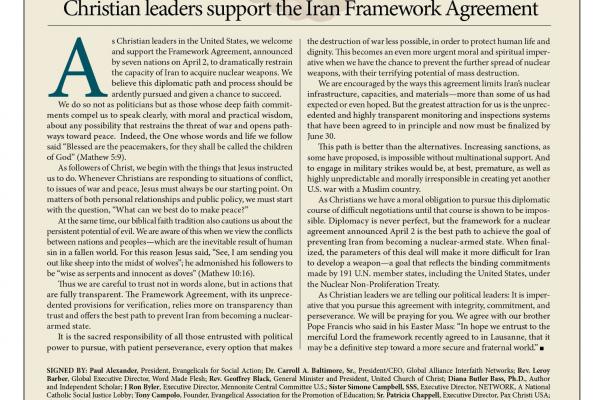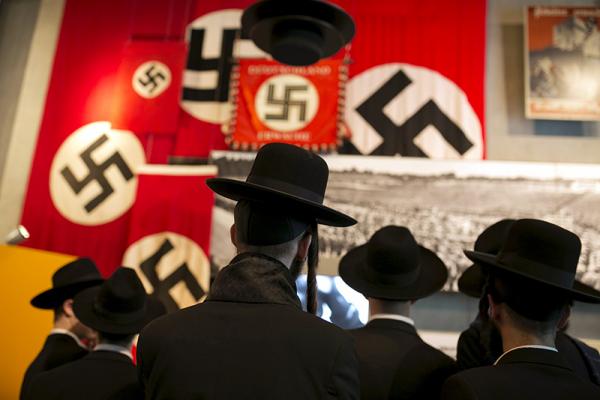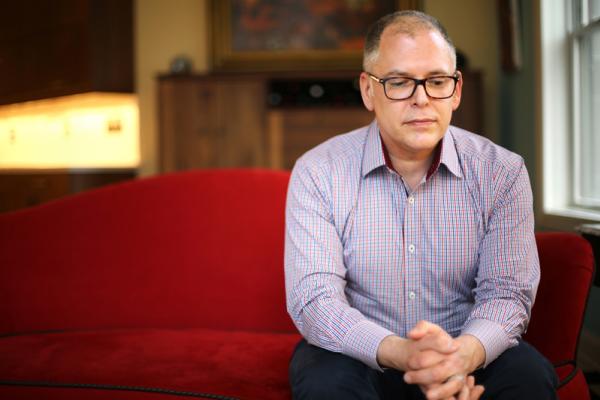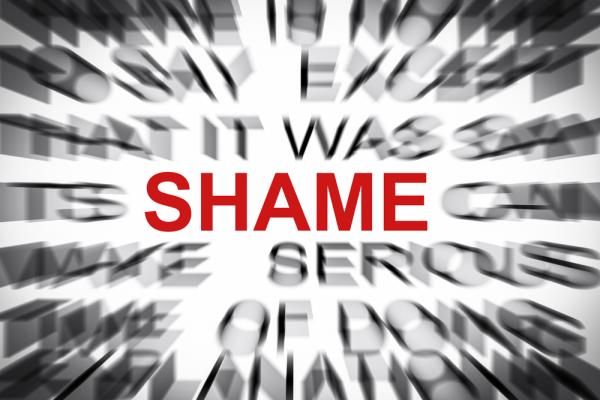In 1990, my father and pregnant mother packed up their life in suburban Illinois, bundled their four young children (including me) onto a plane, and landed in Romania to teach on a grant at the University of Bucharest.
The country was in the throes of revolution following the execution of ousted dictator Nicolae Ceaușescu, and the transfer of power was by no means tidy or complete. The Securitate — one of the most brutal secret police forces in the world — proved difficult to shut down. All our neighbors operated under the assumption that their every move continued to be watched (one friend had taken apart his typewriter by hand and hid it so he could answer honestly that he did not keep a typewriter in the house). Being American, my parents were told to expect our apartment to be bugged.
Freedom had come, but the systems of omnipresent control proved psychologically hard to shake.
The specter of surveillance is an insidious tool. In the 1790s, British philosoper Jeremy Bentham developed a centralized prison model called the panopticon, in which every occupant is visible to a single guard. Most models, since adapted by prisons and schools around the world, leave open the possibility that there is no supervisor watching after all. Whether there is isn't the point — the mere promise of one is enough to coerce significant behavior change. Being constantly observable is the trap.
These days, Americans don’t need a formative year spent in post-soviet Romania to feel uneasy about omnipresent surveillance. Edward Snowden’s revelations of massive secret surveillance programs operating under the NSA, with enormous access to private data from citizens not suspected of terrorism or criminal wrongdoing, rocked our understandings of data privacy and civil liberty. Now, as then, it’s reasonable to worry that we’re being watched.
Less than two weeks after a third-grade teacher in Duncan, Okla., distributed Gideon Bibles to her students, the Church of Ahriman, a Satanist church in Oklahoma City, has asked permission to distribute Satanist literature at Woodrow Wilson Elementary School.
Adam Daniels, the church’s leader, said he wanted to give students a copy of Ahrimani Enlightenment, a primer and workbook normally given to new members of the church.
In a letter to the Duncan school district, some 80 miles south of Oklahoma City, Daniels assured administrators that his book is “no where (sic) near as graphic as the Christian Bible.”
Daniels said he has yet to hear back, but he believes equal access laws mean that his church has the right to distribute literature if other religious organizations are permitted to do so.
First lady Michelle Obama hosted a discussion with musicians and students on gospel music at the White House on April 14, praising gospel’s role as “a ray of hope” in American history.
“Gospel music has really played such an important role in our country’s history,” she told more than 100 students gathered in the State Dining Room, “from the spirituals sung by slaves, to the anthems that became the soundtrack of the civil rights movement, and to the hymns that millions of Americans sing every single day in churches all across the country.”
Here are some of the lessons learned during the 75-minute event, where Grammy Museum Executive Director Bob Santelli interviewed a panel of singers and songwriters ahead of a star-studded concert that will air on PBS on June 26 as part of the “In Performance at the White House” series.
1. Gospel music is personal for the first lady.
“I’m really thrilled that we’re really focusing on gospel,” Obama said of the series that has previously featured classical, country, and soul music.
“It’s something that I wanted to do since we started.”
The limiting of religious freedom is a perpetually contested question in American public life. Most recently, as states consider new laws and the U.S. Supreme Court prepares to rule on same-sex marriage, gay rights supporters and traditionalist Christians appear to be on a collision course.
To make matters worse, whenever disputes between gay couples and conservative Christian wedding vendors arise, a well-funded professional grievance industry sends lawyers and media handlers out to convince the public that this is the great civil rights issue of our time.
As a new prevailing cultural consensus on homosexuality displaces a former one, it remains to be seen how the winners will treat the losers. From laws that impose punitive fines to rhetoric that places “religious liberty” in quotation marks so as to diminish it, the culture war’s apparent victors have not accorded religious freedom its due place of prominence in our public life.
The present tension between religious liberty and LGBT rights is unsustainable, but it is not insurmountable. Activists on both sides have been short on empathy for each other. Leaders have every incentive to portray their opponents as evil retrogrades hellbent on destroying society.
This week, more than 50 Christian leaders came together to voice our support for the framework of a Joint Comprehensive Plan of Action between Iran and the P5+1 nations (the United States, the United Kingdom, France, Russia, China, and Germany), concerning Iran’s nuclear program. Sojourners published the leaders’ statement as a full-page ad in Roll Call, a Washington, D.C., political newspaper widely read by members of Congress and their staff.
The statement, signed by leaders from all the major streams of American Christianity — Roman Catholic, evangelical, mainline Protestant, Orthodox, and Pentecostal — is reprinted below. We want to share this letter with you, the Sojourners community, and the broader public. I urge you to prayerfully consider adding your own voice in support of the diplomatic process and share the opportunity with others. Read it, discuss it in your churches, and add your name. This is a historic opportunity for diplomacy to triumph over armed conflict, and as people of faith, you can play an important role in helping the process succeed.
—Jim Wallis, Founder and President, Sojourners
As Israelis mark Holocaust Memorial Day on April 15, a study by researchers at Bar-Ilan University has found that the adult children of Holocaust survivors are more fearful than their mainstream peers about the threat of Iran developing a nuclear weapon.
Given that many studies over the decades have found that children of Holocaust survivors are deeply affected by their parents’ traumatic experiences, Amit Shrira, the study’s author, set out to discover whether these second-generation survivors were more anxious over a potential Iranian bomb than others of their generation. His study was published in Psychological Trauma, a journal of the American Psychological Association.
Shrira compared the feelings of 63 children of Holocaust survivors whose parents lived under a Nazi or pro-Nazi regime to those of 43 children whose parents either fled to unoccupied countries or immigrated to Israel.
The study found that second-generation survivors “exhibit greater preoccupation with the Iranian nuclear threat” than the comparison group.
Jim Obergefell and John Arthur spent more than two decades living quietly together. They were never gay rights activists. Most of their friends weren’t even gay.
“John and I always joked that we were bad gays,” Obergefell recalled, “because the vast majority of our friends are straight couples.”
But when the Supreme Court ruled on June 26, 2013, that the federal government must recognize same-sex marriages, two new activists suddenly were born — one of whom now stands at the threshold of legal history.
Fifteen days after the high court’s ruling — with Arthur in the final stages of Lou Gehrig’s Disease — the couple flew to Maryland on a medically equipped jet to be legally married on the tarmac. Then they flew back home and learned their marriage would not be recognized in Ohio.
“All I thought was, ‘This isn’t right. I’m p—ed off,'” Obergefell, 48, says now, sitting in the silence of his art-filled condominium in Cincinnati’s historic Over the Rhine district.
Patricia Jannuzzi, the veteran Catholic high school teacher from New Jersey suspended for her anti-gay Facebook posts, will be reinstated immediately, school principal Jean Kline said in a letter.
Jannuzzi, a 33-year theology teacher at Immaculata High School in Sommerville, N.J., was forced to deactivate her Facebook page last month after several alumni started circulating screen shots of her sharply worded posts against gay marriage and gay rights. Two days later, the school placed her on administrative leave.
The letter to students and parents, quoting school director Msgr. Seamus Brennan states in part:
“Immaculata High School has reached an understanding with Mrs. Patricia Jannuzzi. It is the School’s position that a Catholic school teacher must always communicate the faith in a way that is positive and never hurtful. Tone and choice of words matter and I trust Mrs. Jannuzzi’s stated promise to strive always to teach in a spirit of truth and charity.”
Monica Lewinsky and Jesus Christ had a similar experience — they both occupied the place of shame.
In 1998, Monica became a lightning rod for shame in American culture. In her recent TED talk, The Price of Shame, she talks about her experience of public shame. With refreshing humor, she takes responsibility for the “wrong turns” she has taken.
The Lewinsky scandal happened on the cusp of the Internet boom. It was one of the first Internet scandals to go viral. Monica reflects that, “What that meant for me personally, was that overnight I went from being a completely private figure, to a publicly humiliated one worldwide.”
But Monica’s point is not that she’s a victim of shame. Rather, she is using her experience to warn us about our cultural inclination to put others in the place of shame. She hopes that sharing her experience “can lead to a cultural change that results in less suffering for others.”
And there has been a lot of suffering. The Internet has become a public hub of shaming. Monica states that, “A market place has emerged where public humiliation is a commodity and shame is an industry.”
Shame is big business on the Internet. Promoting scandals is the easiest method to get clicks. Monica explains the dangers of this economic system in a radically prophetic way:
"The more shame, the more clicks, the more clicks, the more advertising dollars. We are in a dangerous cycle. The more we click on this kind of gossip, the more numb we get to the human lives behind it. And the more numb we get, the more we click. All the while, someone is making money off of the back of someone else’s suffering. With every click we make a choice. The more we saturate our culture with public shaming, the more accepted it is, the more we will see behaviors…that have humiliation at their core. This behavior is a symptom of the culture we have created."
A culture of shame is more than making money on the Internet. It’s also about developing a sense of moral superiority over and against another person. Gossip sites are addictive because they allow us to feel good about ourselves at the expense of another. Notice that we feel the need to gossip and scapegoat others because we don’t feel good about ourselves. And so we unite with others against another person. Gossip boils down to this thought that runs through our heads: How could they do such a stupid thing! At least I’m not as bad as them!
As presidential candidacies multiply and campaigning accelerates, we can expect much tawdriness to occur. These are difficult times in American democracy.
Money will pour into negative campaigning and ideological posturing. Lies will become the norm. Every word will evoke counterattack, and facts will lose their currency. Barbed sound bites will be mistaken for wisdom. Bullies claiming to be “Christian” will be among the loudest. On both sides.
What are people of faith to do?
We can assume, first of all, that truth-telling will be absent all around. We, then, need to be truth-seekers, reading beyond the sound bites and toxic jabs for actual insights into what candidates stand for and what is their character.
We can assume, second, that God’s name will be taken in vain by everyone. Every candidate will tell stories of personal faith, maybe even dramatic conversion. They will quote Scripture and claim to be promoting God’s work.
In fact, to judge by candidates’ behavior, their words will be insincere and their faith a concoction meant to satisfy the sweet tooth of religious leaders. We, then, need to do our own work of discerning whether they have any functional familiarity with Scripture and any real concern for Christian ethics.

